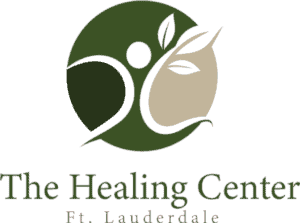Depression is a type of mood disorder that is characterized by a chronic feeling of sadness and loss of interest in daily activities. Depression is also referred to as depressive disorder or clinical depression. It often affects individuals emotionally, physically, and behaviorally. Furthermore, people who struggle with depression normally have trouble maintaining their daily responsibilities. Feelings of hopelessness are also common in those diagnosed with depression. Thankfully, depression can be treated through medication and therapy. Understanding the signs of depression is the first step towards getting the help needed to heal.
Symptoms And Signs Of Depression
Sometimes depression only happens once in a person’s lifetime, but normally it tends to be in recurrent episodes. When someone is having a depressive episode their symptoms occur almost daily. The signs and symptoms of depression occurrences include:
- Chronic feelings of sadness, emptiness, or hopelessness
- Outbursts of anger or irritability
- Loss of interest in pleasurable activities
- Sleep pattern changes including insomnia or over sleeping
- Excessive exhaustion and lack of motivation
- Changes in appetite including eating too little or too much
- General anxiety, panic attacks, or restlessness
- Thinking feels slow
- Feeling worthless or guilty
- Obsessing over past or current mistakes
- Difficulty concentrating and making decisions
- Suicidal thoughts or attempts
- Self harm
- Physical health problems such as joint and muscle pain or headaches
Normally, it is easy to see the signs of depression. It often impacts someone’s ability to do daily activities including work, school, socializing, or taking care of their family. Often, individuals feel unhappy without being able to pinpoint a specific reason for it.
Signs Of Depression In Children and Teens
Signs of depression in children can be similar to those of adults, but there are also some differences. Furthermore, children often have a harder time identifying what emotions they are feeling and why. Signs of depression in teens include:
- Young children may experience sadness, irritability, clinginess, worry, pain, refusing to go to school or other activities, or being underweight.
- Teens may experience sadness, irritability, feeling worthless, anger, poor grades, poor attendance at school, feeling misunderstood, extremely sensitive, self harm, drug use, eating disorders, loss of interest in daily activities, and social isolation.
Signs of Depression In The Elderly
Depression is not simply a part of growing older. The symptoms of depression should not be ignored. Unfortunately, depression often goes undiagnosed and untreated in older adults. Commonly, the elderly do not want to ask for help, or admit to having symptoms of depression. Symptoms of depression may be more difficult to identify. Some signs include:
- Difficulty remembering things
- Personality changes
- Physical symptoms such as headaches and pain
- Fatigue and loss of energy
- Appetite changes
- Insomnia or trouble staying asleep
- Low sex drive that is not due to a medical diagnosis
- Isolating from friends and families
- Lack of interest in trying new activities
- Suicidal thoughts, feelings, or actions.
When To See A Doctor
If you are experiencing any symptoms or signs of depression, then it is important to seek help from your doctor or mental health provider. Depression can be treated. Normally, therapy and medications are suggested in order to get you back to feeling like yourself again. If you ignore your symptoms, then they may get worse and recurrences are more likely to happen.
Should I Seek Emergency Help For My Depression?
If you are having suicidal thoughts, believe you may hurt yourself, or have a plan to hurt yourself, then you should seek emergency care immediately.
These resources can also help you if you are having suicidal thoughts:
- Call your primary care physician or a mental health professional (therapist psychologist, or psychiatrist)
- Contact a suicide hotline.
- In the U.S., call or text 988 to reach the 988 Suicide & Crisis Lifeline, available 24 hours a day, seven days a week. Or use the Lifeline Chat. Services are free and confidential.
- U.S. veterans or service members who are in crisis can call 988 and then press “1” for the Veterans Crisis Line. Or text 838255. Or chat online.
- The Suicide & Crisis Lifeline in the U.S. has a Spanish language phone line at 1-888-628-9454 (toll-free).
- Contact a friend or loved one
If you have a loved one who you believe is suicidal or has attempted suicide, then make sure the individual is supervised and call 911 immediately.
Get Help For Depression In Fort Lauderdale, FL
Depression is a serious mental health condition that can affect multiple aspects of your life. Thankfully, treatment is possible. The Healing Center offers depression treatment in Fort Lauderdale, FL. Our program offers multiple different therapies, levels of care, and medications in order to help you heal from your mental health struggles. If you or a loved one is struggling then contact our admissions team today to learn more about our mental health treatment options.






